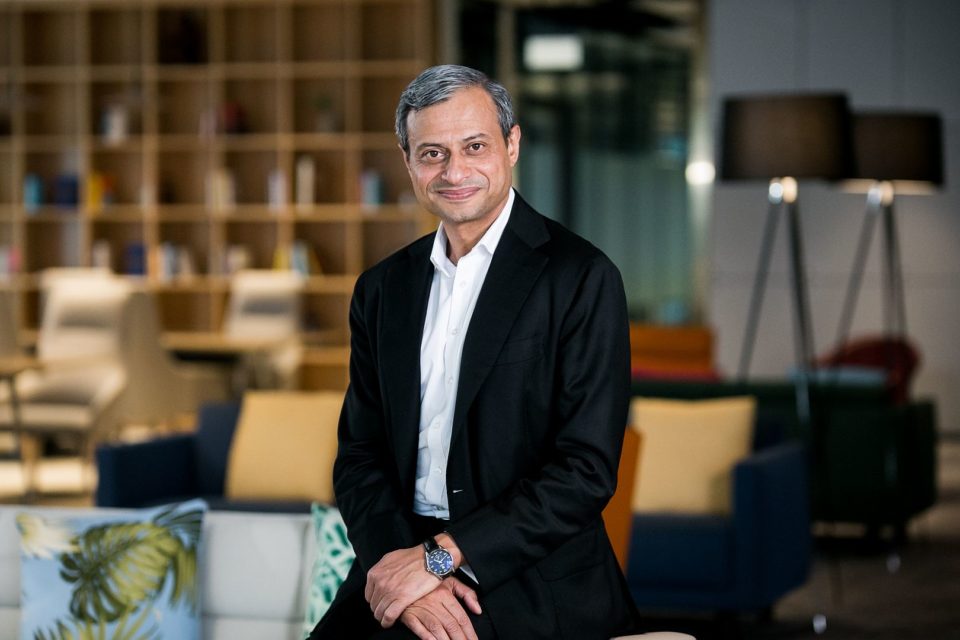By Ahmed Mazhari, President, Microsoft Asia. This article was originally posted on LinkedIn.
A couple of months before the initial cases of COVID-19 emerged in China, I had my first meeting with Satya Nadella about joining Microsoft. I was very excited about building long-term relationships with the company’s customers and partners in Asia. Also, I was looking forward to working with my new colleagues face to face as we tackled ambitious goals for the region together.
I had no idea that my start date – February 10th, 2020 – would mean that just after I had relocated to Singapore, I’d have to then almost immediately readjust to leading and collaborating in a remote working environment.
Fast forward a few months, and I’ve had to quickly figure out how to be present as a regional leader while navigating a global pandemic and building relationships with colleagues, partners and customers virtually, all at the same time. However, these challenges have also quickly taught me to focus on three core traits: Energy, Clarity and Empathy.
A different kind of energy
I’m a touch and feel leader. I love to meet with people and spend time building the non-business side of the relationship to create real human bonds and trust.
In the past, I’ve spent about half of my time on the road each year. This created many opportunities for direct engagement, especially through the open conversations one might have over a meal versus the more objective-based ones we usually have in meetings.
In the current environment, I’ve learnt the importance of the unstructured connections that bring more opportunities for spontaneous leadership – leading in the moment and through unanticipated situations, which can really give your team a clearer sense of who you are as a person, your core values and strategic direction.
Today, I cannot break bread with partners or clients, and it has forced me to think about how to access the softer side of a relationship in a 30- or 60-minute Teams meeting.
It’s not just about getting things done though – it’s also about sincerely connecting with employees, partners and customers, especially with many I’m meeting for the first time over a computer screen. It’s been crucial in these days of very bounded conversations to still find ways to connect on a personal level and to not be beholden to the agenda or clock in all cases.
Clarity is table stakes
Around the world, we’ve seen just how important communication has been during this crisis. Especially when tens of thousands of employees are depending on us to provide them with a sense of purpose, positive focus on moving forward and clarity on how to get there. We must address their expectations and provide them with accurate information quickly, and having delays and ambiguity are not an option.
I’m the kind of leader who leads alongside my team, rather than issuing proclamations from far in front. Together, we have held countless virtual town halls and internal Teams meetings over the past months. We have entered a phase of overcommunicating, and that’s a good thing right now as far as I’m concerned. This stronger emphasis on two-way communication and alignment has been crucial to our operations and stability.
During this time, we also recognize the role our technology plays more than ever before. We have been empowering the first responders to share information quickly to protect public health. For example, in China, I’ve been heartened to witness Yuanying Medicine deploy Power BI technology to build an epidemic data analysis and decision-making platform for the government to understand the progress of the pandemic and manage the country’s response to COVID-19.
Empathy is a core leadership tool, especially now
Empathy is a first-level attribute that requires you to change the way you think as a human and consequently therefore as a leader.
We have to always remember that everyone we touch in this working life is a person, and that they have the same challenges and concerns as everyone else during this time, including safety, stability, family and all the rest. That goes for ourselves as well.
And we shouldn’t hide that. Showing our imperfections creates more authenticity, connection and trust. Being a real, full human being is especially crucial at this time.
I don’t know about you, but in the past when someone was working remotely, if there was too much background noise like a dog barking or child screaming, I was a lot less patient. We all were. We might have told them to go on mute, or told them to go handle it, or asked them to please avoid disturbing everyone. Just think about that.
Today a doorbell rings and we shrug, so what? A child pops into the frame and wants attention, or wants to understand something on their homework, we accept it. We’ve all been there now. So, I think just fundamentally, one must understand all the constraints that this new world has imposed on us. And appreciate that this shared experience of navigating everyday life will help leadership teams coalesce much faster than we would have under “normal” circumstances.
Companies also have to put skin in the game – not just by understanding their employees but in doing something about it. As leaders, we play a crucial role in ensuring this is practiced by displaying empathy.
From expanding our childcare leave to increasing mental health programs, at Microsoft we want to be sure we’re giving our employees enough support. We are particularly interested in how managers are able to empathize with and connect with employees more emotionally in a remote setting. In fact, we have started an “at-scale experiment”, digging into and collecting insights on how we are adjusting to working in a “remote everything” world.
Empathy comes in many forms and often starts with listening, reflecting, and eventually understanding what our employees, customers and partners are saying.
Too often, we are quick to decide what is best, basing our opinions on our experience, past success and skillsets. But by listening to and understanding what others are saying we can be significantly more objective, inclusive and, in the end, more impactful.
This means also ensuring we remain diverse as a workforce and make room for a wide range of viewpoints. However, all the diversity hires in the world won’t matter if our employees don’t feel valued for what they bring or aren’t respected for who they are. Without inclusion, the power of diversity remains untapped.
Today’s new normal – and beyond
I have never worked in this kind of uncertainty before; I don’t think any of us have, honestly. While it isn’t anything I planned or expected, I am grateful for what I’ve been able to learn from it.
During these challenging times, it is truly humbling to have an opportunity to deliver on Microsoft’s mission to enable every person and every organization on the planet to achieve more. We as a company have an important role to play to support organizational resilience and economic recovery today and build for tomorrow.
For me, that means keeping my focus on energy, clarity and empathy, in order to continue to help our teams, customers and partners here in Asia adapt and succeed in the new normal we will see going forward. A new normal which I hope will have a renewed emphasis on human connection and understanding – whether remotely today or in person down the road.






